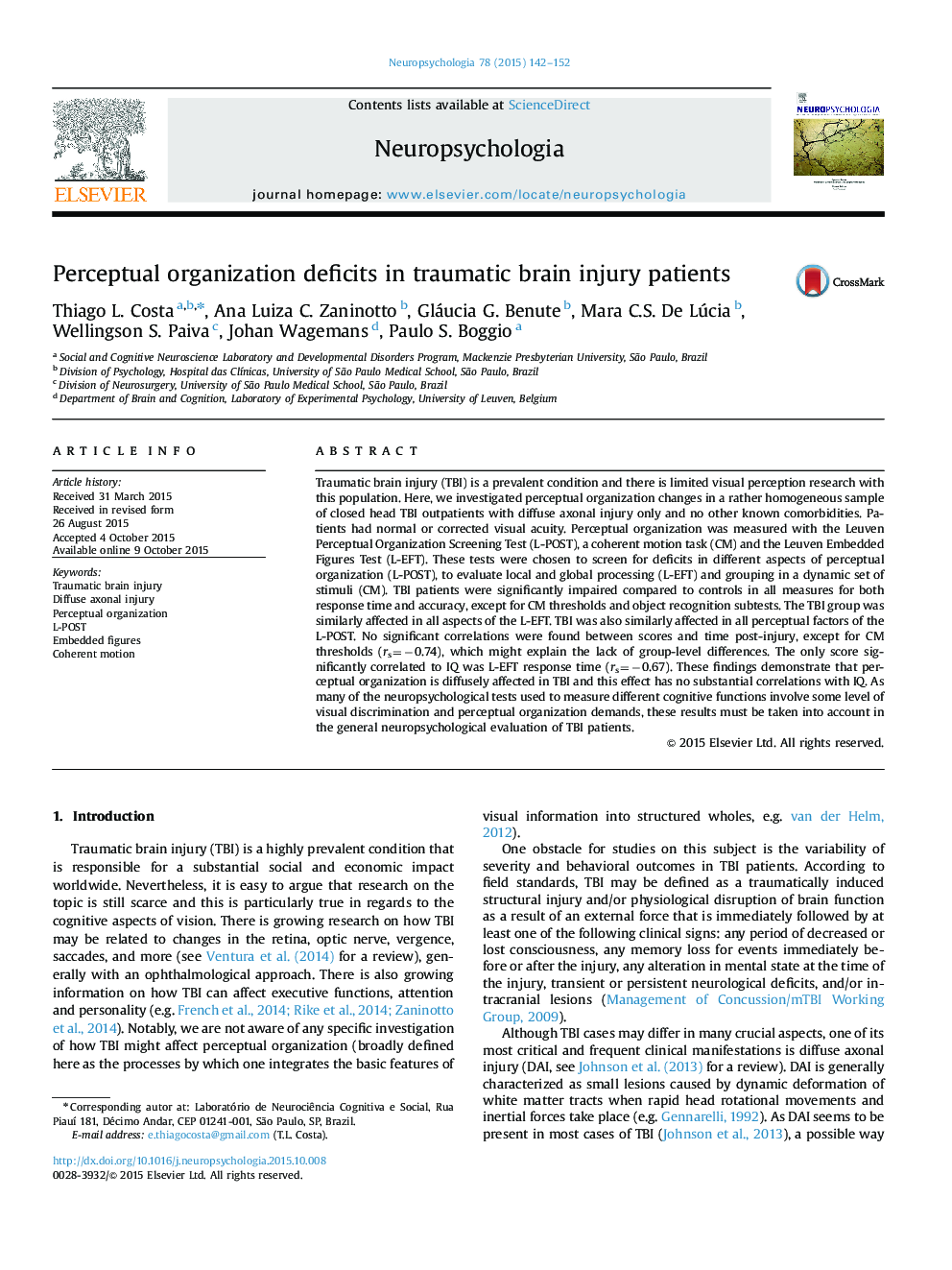| Article ID | Journal | Published Year | Pages | File Type |
|---|---|---|---|---|
| 7319612 | Neuropsychologia | 2015 | 11 Pages |
Abstract
Traumatic brain injury (TBI) is a prevalent condition and there is limited visual perception research with this population. Here, we investigated perceptual organization changes in a rather homogeneous sample of closed head TBI outpatients with diffuse axonal injury only and no other known comorbidities. Patients had normal or corrected visual acuity. Perceptual organization was measured with the Leuven Perceptual Organization Screening Test (L-POST), a coherent motion task (CM) and the Leuven Embedded Figures Test (L-EFT). These tests were chosen to screen for deficits in different aspects of perceptual organization (L-POST), to evaluate local and global processing (L-EFT) and grouping in a dynamic set of stimuli (CM). TBI patients were significantly impaired compared to controls in all measures for both response time and accuracy, except for CM thresholds and object recognition subtests. The TBI group was similarly affected in all aspects of the L-EFT. TBI was also similarly affected in all perceptual factors of the L-POST. No significant correlations were found between scores and time post-injury, except for CM thresholds (rs=â0.74), which might explain the lack of group-level differences. The only score significantly correlated to IQ was L-EFT response time (rs=â0.67). These findings demonstrate that perceptual organization is diffusely affected in TBI and this effect has no substantial correlations with IQ. As many of the neuropsychological tests used to measure different cognitive functions involve some level of visual discrimination and perceptual organization demands, these results must be taken into account in the general neuropsychological evaluation of TBI patients.
Related Topics
Life Sciences
Neuroscience
Behavioral Neuroscience
Authors
Thiago L. Costa, Ana Luiza C. Zaninotto, Gláucia G. Benute, Mara C.S. De Lúcia, Wellingson S. Paiva, Johan Wagemans, Paulo S. Boggio,
